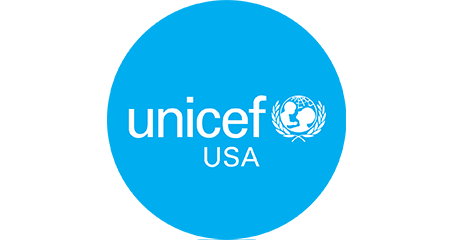NEW YORK (December 14, 2022) – Continuing attacks on critical energy infrastructure in Ukraine have left almost every child in Ukraine – nearly seven million children – without sustained access to electricity, heating and water, putting them at increased risk as temperatures continue to drop and winter deepens, UNICEF warned today.
Without electricity, children are not only facing extreme cold – winter temperatures can drop below -20°C – but are also unable to continue the online learning opportunities which are many children’s only access to education, with so many schools damaged or destroyed. Additionally, health facilities may be unable to provide critical services, and malfunctioning water systems raise the already extremely high risks of pneumonia, seasonal influenza, waterborne diseases and COVID-19.
“Millions of children are facing a bleak winter huddled in the cold and the dark, with little idea of how or when respite may arrive,” said UNICEF Executive Director Catherine Russell. “Beyond the immediate threats the freezing conditions bring, children are also deprived of the ability to learn or stay connected with friends and family, putting both their physical and their mental health at desperate risk.”
Intensified attacks in October destroyed 40 percent of Ukraine’s power production, further exposing families to harsh winter conditions, impacting livelihoods, and increasing the likelihood of additional large population movements. Despite ongoing repairs, on November 28, the Ukrainian energy system was able to cover only 70 percent of the peak demand to generate power, according to OCHA.
The harsh winter, combined with a loss of income and the energy and socioeconomic crisis triggered by the war are devastating to the well-being of children and families. Families’ incomes, and access to services have been decimated by the destruction of infrastructure in the almost 10 months since the war escalated. The situation is especially acute for the 6.5 million people, including 1.2 million children, who are currently displaced within Ukraine.
As areas previously affected by heavy fighting become accessible, UNICEF started distributing winter clothing kits, water heaters, and generators in the frontline and newly accessible areas of Kharkiv, Kherson and Donetsk oblasts. More than $20 million worth of winterisation supplies have been procured to date.
A bleak winter will also likely worsen the psychosocial situation for children, who are already facing a looming mental health crisis, with an estimated 1.5 million at risk of depression, anxiety, post-traumatic stress disorders and other mental conditions. The impact on children’s access to education is just the latest disruption after the early end of the previous school year and disruptions related to the COVID-19 pandemic. UNICEF has winterized more than 55 of its SPILNO Child Spots – safe, warm spaces providing integrated services for children, youth and caregivers.
“The rules of war are clear – children and the essential civilian infrastructure they rely on to survive must be protected,” said Russell. “It is also essential that UNICEF and our humanitarian colleagues have the rapid and unimpeded access to children and families in need of humanitarian assistance no matter where they are.”
To date, UNICEF has been able to provide access to primary health care in UNICEF-supported facilities and through mobile teams to nearly 4.9 million children and women in Ukraine. Over 4.2 million people have been provided with access to safe drinking water and over 1 million people have received critical water, sanitation, and hygiene supplies, including in newly accessible areas. UNICEF-supported mental health support interventions have reached over 2.5 million children, nearly 900,000 children have been engaged in formal or non-formal education and nearly 500,000 children have benefited from learning interventions. Nearly 200,000 families have been reached by UNICEF-funded multi-purpose humanitarian cash transfers.
Last week UNICEF launched its annual Humanitarian Action for Children Appeal. UNICEF requires $1.1 billion to address the immediate and longer-term needs of 9.4 million people, including 4 million children, who remain deeply impacted by the war in Ukraine. Funding will enable UNICEF to provide, sustain and expand critical services in health, nutrition, child protection, gender-based violence, WASH and social protection alongside government relief and recovery efforts. It will ensure timely preparedness for additional internal displacements and refugee movements.
# # # #
About UNICEF
The United Nations Children’s Fund (UNICEF) works in more than 190 countries and territories to pursue a more equitable world for every child. UNICEF has helped save more children’s lives than any other humanitarian organization, by providing health care and immunizations, safe water and sanitation, nutrition, education, emergency relief and more.
UNICEF USA advances the global mission of UNICEF by rallying the American public to support the world’s most vulnerable children. Together, we are working toward a world that upholds the rights of all children and helps every child thrive. For more information, visit www.unicefusa.org.
For more information please contact:
Jenna Buraczenski, UNICEF USA, (917) 720-1432, [email protected]
